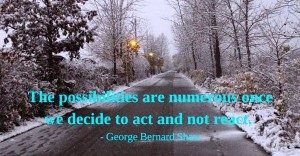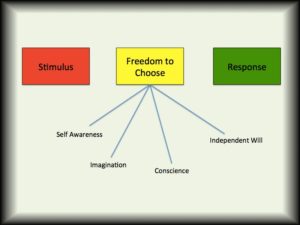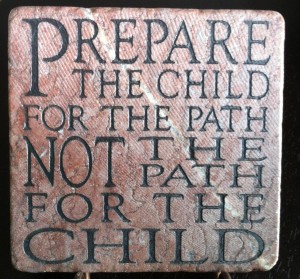 “Between stimulus and response there is a space. In that space is our power to choose our response. In our response lies our growth and our freedom.” This quote, oft used by productivity guru and Seven Habits author Steven Covey, are actually the words of Viktor Frankl.
“Between stimulus and response there is a space. In that space is our power to choose our response. In our response lies our growth and our freedom.” This quote, oft used by productivity guru and Seven Habits author Steven Covey, are actually the words of Viktor Frankl.
Over a period of 2½ years, Frankl, a practicing Viennese psychiatrist, survived Nazi concentration camps of Theresienstadt, Auschwitz, Kaufering, and Türkheim. Most of his family did not.
Originally titled Trotzdem Ja Zum Leben Sagen: Ein Psychologe Erlebt das Konzentrationslager (translation: Saying Yes to Life in Spite of Everything: A Psychologist Experiences the Concentration Camp), his masterpiece is most remembered by us as Man’s Search for Meaning.
His position is that there is meaning in EVERY MOMENT.
How can we take that philosophy out of the depths of concentration camp life and put it to work?
Frankl concludes from his experience that a prisoner’s psychological reactions are not solely the result of the conditions of his life, but also from the freedom of choice he always has—even in severe suffering.
The Eagles’ “Hotel California” includes the lyrics “We’re all just prisoners here of our own device,” which I think sums this up very clearly. We don’t have to be in a concentration camp to be hemmed in by our learned beliefs, values, and reactions.
The result of living in the Hotel California is a series of programmed reactions to things that happen to and around us and frequently to the people who perpetrate them.
Car cuts us off? Honked horn and hand gesture.
Unmet expectation from a direct report? Rebuke and stern discussion.
Missed putt? Excuses.
Unpleasant medical diagnosis? Fear.
It’s difficult to deny that these are all learned reactions. They sort of constitute our Knower/Judger rule set, though, don’t they?
We carry around thousands of them that we are ready to execute at a moment’s notice. But what if we could use that moment differently? More constructively?More beneficially?
Now we’re back in Frankl’s world. He supposes that if a person has a bigger reason (meaning) for his life—the team, the child, the aspiration, the nation, the safety of fellow soldiers—then he can use that moment to decide to do something different than his learned K/J autopilot would tell him to do. What a concept! You mean I don’t have to flip that guy who cut me off the bird?
I don’t have to yell back when accused of something?
I don’t have to scold the child for stealing my breakfast toast?
I don’t have to persecute myself whenever I don’t measure up?
I think what happens to us (to me, anyway)is that we are so connected to the “rule” that my immediate reaction is so easy, so predictable, and sometimes so damaging as to have real negative effects on my life. I have been, for one thing, my own worst critic. My K/J can just beat the crap out of me for almost anything it determines was “stupid.”
So how can I employ Frankl’s philosophy?
A simple tool I’ve seen used over the years, especially from pop-psych gurus, is to count to 10 when something happens that normally yields a predictable reaction. For one thing, developing the ability to do that would pretty much ensure that I have at least made sure I hadn’t reacted emotionally. Although I may just wait for the 10 count and then react as I normally would, ideally that 10 count would allow me to alter my interpretation. My brain might take over and decide the normal reaction would be a little “over the top.” Or I may decide that I could respond in a better way that might actually support my big picture aspirations.
No matter how you accomplish it, taking a break—whether a full 10-count or an instant—and deciding to do something different from what you were about to do can be life changing. As it was for Frankl in the concentration camps.
Once I realized that another option existed—to not react—it was eye-opening. And guess what? If I didn’t do what I’d always do, the other guy might not react the way he typically would either. (After all, he reacts using the same mechanics.) The world didn’t continue to beat me up. The anxiety level dropped. Things got easier.
I don’t have any guarantees for you. It may not even work for you. But I’ve seen it transform people who were looking for ways to be transformed.
The other option?
Learn to recognize it.
Respect it.
Understand it’s your chance to escape the repeated frustration, anger, resentment, fear, inferiority. It may even help you survive that concentration camp of your own device


